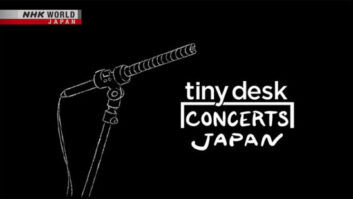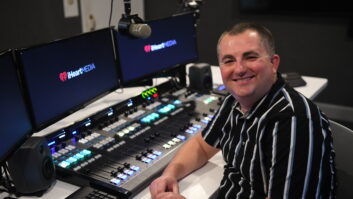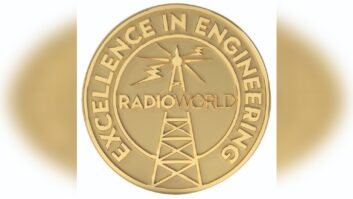When the call letters for an LPFM station in Florida were deleted in March, one of the first outlets to report it was a radio devotee who tracks the low-power FM community so closely that he has a database tracking every single LPFM on the dial.
When the FCC created the LPFM radio service in 2000, Jim George’s interest was piqued. Intrigued by the breadth and range of LPFM stations out there, George started the LPFM Database in 2001. The website lists LPFM radio stations state by state, with up-to-date listings of the status, coverage maps and format listings of low-power FM stations nationwide.

Dipping into his database page is like getting a slice of American life. A peek at LPFM stations in the California Bay Area reveals stations like KUSF in San Francisco, which is focused on inspiring peace through technology via education, music and dance. Across the nation, station themes run the gamut — be it a station celebrating the Baha’i Faith in the Arizona desert, two stations devoted to the Pascua Yaqui tribe or a trade association focused on paint.
Another page is devoted to LPFM statistics, including a running tab on when an LPFM license was granted, how many LPFM booster stations currently are broadcasting and how many stations have undergone frequency changes. When those station call letters for station WPCQ 96.3 in Clearwater, Fla., were deleted in early March, George noted that the deletion of the station brought the national count of active, on-the-air LPFM stations down below 2,000 for the first time in quite a while. In late April, the number had dipped to 1,992.
Radio World spoke with George, the creator of LPFMDatabase.com, about his interest in low-power FM stations, the goals of the database, what he thinks the future may hold for the LPFM community — and how he feels about a station devoted to nothing but whale sounds.
Radio World: Can you tell me about your interest in low-power FM radio?
Jim George: My interest in LPFMs is rooted in my initial interest in pirate radio. Having been involved with two pirate radio stations in my area over the years (both of which ceased broadcasting voluntarily), I felt it was important to have an alternative voice on the airwaves with independent programming that is normally not heard on commercial, corporate radio. When the FCC initiated the LPFM radio service in 2000, it piqued my interest.
RW: Why and when did you start the lpfmdatabase.com?
George: I started LPFMDatabase.com in 2001, right around the time the FCC was starting to grant construction permits and licenses for the initial crop of LPFM. I felt it was important to document these stations, so people could find them easier and potentially listen and/or support them.
RW: What is it about LPFMs that make them such an important part of the radio industry?
George: LPFMs were designed to be hyper-local stations that cater to their city of license with independent programming and information, whereas full-power commercial, corporate radio falls short of that, especially now with generic voice-tracked “personalities” being the norm. LPFMs provide a “voice” for the normally “voiceless.”
RW: You have LPFMs listed out in separate databases. Was that due to size reasons? Or to give people an easier way to search?
George: Believe it or not, when I first started [the database], everything was on one page. As more and more stations were granted, I didn’t want the page to get too big, so I started separating the states to make it easier to browse through them.
RW: What kind of response have you gotten from people about the various LPFM search options: new LPFMs, LPFMs that have gone silent and others?
George: I have had a very favorable response to the site and its features, pretty much from its inception. I’ve tried to keep it simple, without any fancy graphics or animations, so that everyone can access and utilize it.
RW: As you have been tracking various LPFMs over the years, would you tell me about a few that interested you?
George: Since starting my website, I’ve befriended many LPFM operators all across the country. My father lives in the San Antonio area and from my visits down there, I’ve had the chance visit some LPFMs there including “Encore Radio” KWSP(LP) 104.9 in Kerrville, Texas, which features a mix of adult contemporary and smooth jazz music, and KCJV(LP) 97.9 in Leon Springs, Texas, which features obscure oldies music from the 1950s and 1960s.
RW: Are there any stations that you feel are compelling, surprising, strange, unique
George: There are a few LPFMs out there that are definitely unique. There was an LPFM in Alaska (KAQU-LP 88.1 in Sitka) that featured nothing but whale sounds. Some current stations that feature unique (to me) programming include Z-98 WDTZ(LP) 98.1 in Delhi Township, Ohio, which features primarily an all-80s music format, and KVEX(LP) 97.5 in St. Cloud, Minn., which features a 90s alternative rock format. In both instances, these stations (and most music-oriented LPFMs) also feature obscure titles that wouldn’t normally be played on traditional full-power stations.
Another favorite of mine is 99.3 The Wave KRWV(LP) 99.3 in Gold Canyon, Ariz., which features a smooth jazz format.
RW: I was surprised at how many cancelled LPFMs there were. Are there any trends over the years that you think contribute to cancellations of those low-power stations?
George: There has definitely been an uptick in cancelled LPFMs in recent years. Some can be attributed to the ongoing pandemic, but a lot of it is simply a lack of funding.
Without the support of listeners and underwriting from local businesses, LPFMs cannot survive.
RW: What kind of interest or feedback do you get from those who visit the site? Do you ever receive any questions about how they might get involved?
George: Feedback on my site has been positive as people seem to appreciate the simple format that I present. I do get occasional e-mails and messages from people asking about information on certain stations and try to answer them to the best of my ability.
RW: For our readers, many of whom are LPFM fans, do you have any advice or suggestions for those interested in getting into this space with a station of their own?
George: I think the FCC is planning on opening a new LPFM filing window at some point [soon], so those of you out there who are interested in applying for a station should be on the lookout for a press release from the FCC. [Editor’s note: At press time the FCC had not yet announced the dates for the next LPFM application filing window.]
RW: What else would you like our readership to know about your database?
George: The database is updated nearly every day and features station websites (and parent organization websites), along with streaming links for the station, if they’re available.












